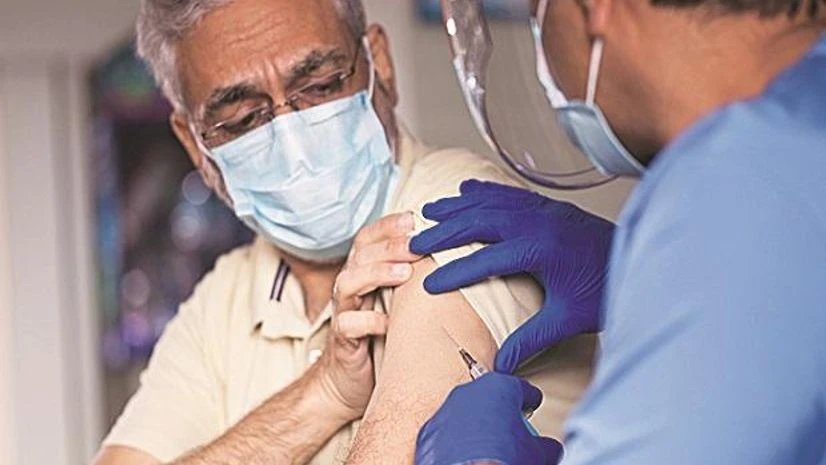As on date, no foreign COVID-19 vaccines have been purchased or received as donation by the government of India, Minister of State for Health Bharati Pravin Pawar informed Lok Sabha on Friday.
On whether India in the first instance exported vaccine without assessing the impact of the second wave and need of vaccine in the country, Pawar, in a written reply, said the government of India has secured COVID-19 vaccines for the eligible beneficiaries as per the availability of vaccines in the country.
In response to another question on whether the government has signed any agreement with foreign countries for supplying Covid vaccine to India, the minister said while the government of India is engaged in a dialogue with foreign manufacturers of Covid vaccine, no specific agreement has been signed as yet.
The export quantity comprised vaccines committed under international agreements by the domestic manufacturer to COVAX and its individual commitments to other countries or organisations and vaccines supplied through the "Vaccine Maitri" initiative, Pawar said in the written reply.
Elaborating on the reasons for not identifying journalists as frontline workers and giving them priority for vaccination, she said COVID-19 vaccination is guided by the National Expert Group on Vaccine Administration for COVID-19 (NEGVAC) on the basis of concurrent scientific evidence.
The prioritisation for vaccination has been done with an aim to protect the pandemic response and health system and to have maximum impact on reduction of disease and deaths due to COVID-19, she said.
This was later followed by age-based prioritisation, which is considered equitable and which has also been the practice globally, Pawar stated.
More From This Section
On the total doses of foreign vaccines so far received on purchase or as donation so far and the timeline fixed by the government to vaccinate all the eligible people in the country, she said, "As on date, no foreign COVID-19 vaccine has been purchased or received as donation by the government of India".
In view of the dynamic and evolving nature of the COVID-19 pandemic, no fixed timelines at present can be indicated for the completion of the vaccination drive, however, it is expected that all beneficiaries aged 18 years and above will be vaccinated by December 2021, she stated.
The National COVID-19 Vaccination Drive is progressing at a steady pace and Covid vaccination has improved significantly from 2.35 lakh doses per day in the month of January 2021 to an average of 39.89 lakh doses per day in the month of June 2021, Pawar said.
However, in order to raise awareness about COVID-19 vaccines, address vaccine hesitancy and sustain vaccine confidence, a communication strategy is in , lace which is being implemented across all states and UTs, she said in another reply.
Under the National Covid Vaccination Program, from January 16 to April 30 2021, 100 per cent of vaccine doses were procured by the government of India and provided free of cost to state governments.
From May 1 to June 20, "The Liberalized Pricing and Accelerated National COVID-19 Vaccination Strategy" was brought in effect in order to incentivize production by vaccine manufacturers and encourage new COVID-19 vaccines. Under this strategy, states and UTs and private hospitals were allowed to procure COVID-19 vaccine directly from manufacturers.
The government of India procured 50 per cent of monthly vaccine production by the domestic manufacturers, the state government and private hospitals procured remaining 50 per cent doses.
The quantity of doses available for states and UTs and private hospitals was worked out on state-wise population of 18 to 44 years on pro-rata basis, Pawar said in her reply.
The "Revised Guidelines for Implementation of National COVID Vaccination Program" were issued on June 8, to be effective from June 21 under which the government of India is procuring 75 per cent of COVID-19 vaccines produced in the country and providing it free of cost to states and UTs.
The states and UTs, in turn, will administer the vaccines free of cost to all citizens as per priority. The domestic vaccine manufacturers have the option to provide 25 per cent of their monthly vaccine production directly to private hospitals.
The guidelines were reviewed and revised keeping in view the experiences gained from May 1 this year and the repeated requests received from states, the reply stated.
(Only the headline and picture of this report may have been reworked by the Business Standard staff; the rest of the content is auto-generated from a syndicated feed.)

)
